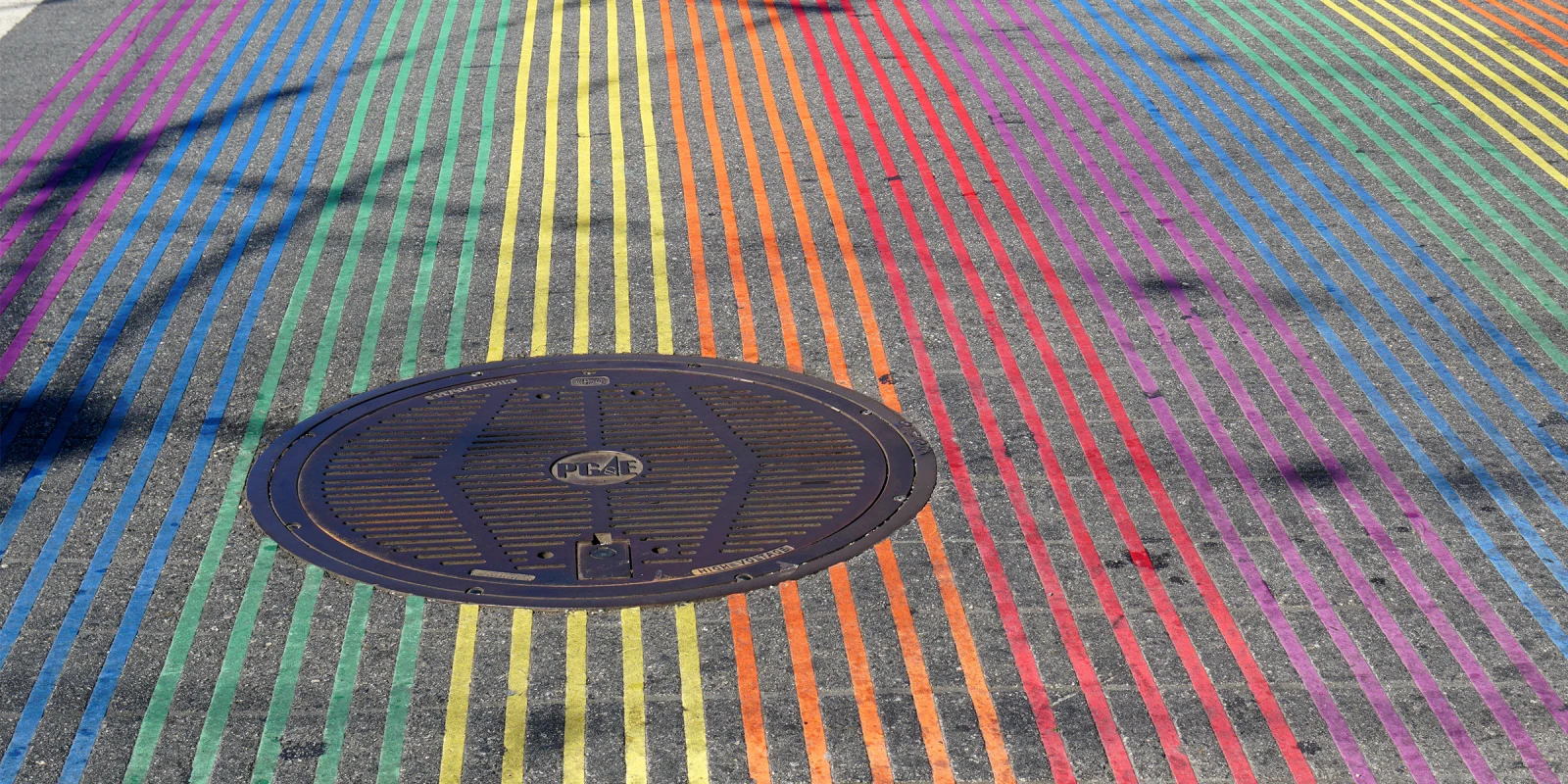Each year in October, the U.S. celebrates Mental Illness Awareness Week. As a psychiatrist, I spend a lot of time thinking about the issue of mental health — particularly among the LGBTQ patients I see in my San Francisco practice. I came to this city 30 years ago for my psychiatry residency knowing that if I couldn’t be comfortable being a gay man here, it wasn’t likely to happen anywhere else on this planet. I met my husband through the gay running club, and nobody hassled us when we held hands in public. I was greeted with nonchalance while pushing a baby stroller with our twins. I’ve seen patients in my home office in the heart of the Castro for 20 years. San Francisco has served as my gay sanctuary.
Living in San Francisco means being in a progressive bubble. The whole city celebrates the Gay Pride parade. Not only did we elect the out civil rights leader Harvey Milk to the Board of Supervisors in 1977, but every year since we’ve stocked the Board with gay and lesbian supervisors. Our bubble of tolerance blankets us like the fog that keeps San Francisco temperatures moderate while the rest of the West scorches under record-breaking heat. We feel insulated and protected from less progressive portions of the world.
And yet, while bubbles create protected enclaves, they are themselves fragile. The blankets that provide security can be pulled over our eyes, leading us to overlook problems in our midst. Even within San Francisco’s haven of acceptance, I can think of at least four issues that threaten the mental health of portions of the LGBTQ community: 1) internalized homophobia, 2) survivor’s guilt in the HIV-positive community, 3) hate crimes, and 4) resistance to nonbinary identities.
Ongoing Internalized Homophobia
Even in San Francisco, a handful of my patients, mostly from my boomer generation or older, remain closeted about their sexuality. They formed their sexual orientation identities in an era when society pervasively stigmatized homosexuality. These individuals have invested so much psychic energy in the false heterosexual identities they present to the world that they are terrified of removing these veneers and acknowledging their true selves. Their very longevity in the closet means that they have more to sacrifice should they come out.
Furthermore, this population is also wary of being treated like the #MeToo movement participants who were pilloried for “not speaking up sooner” about histories of sexual abuse; they worry that their truths will be dismissed or attacked because they kept them hidden for so long. Some of these individuals have not even told their spouses or families about their true sexual orientation. Not to mention, many individuals who live openly queer lives still struggle with ongoing self-disparagement because of unresolved, internalized homophobia.
Long-Term HIV-Positive Survivors
Over the past year and a half, many voices have asserted that the world hasn’t seen a pandemic comparable to COVID-19 for more than 100 years. Yet the death toll in the U.S. from AIDS (over 700,000) is near equivalent to that of the coronavirus, and worldwide, HIV has killed many more people (over 36 million) than has COVID-19. Unlike COVID-19, which affects all adults (and even children and adolescents), AIDS was (and is) more prevalent in the gay community, and in the early days of the epidemic was almost universally fatal. Decades later, many gay men still suffer from survivor’s guilt after having lost their partners and/or dozens of their closest friends. Many gay men of this cohort, whether HIV-positive or negative, continue to display symptoms of anxiety, depression, PTSD, chronic loneliness, and numbing.
For this population, the COVID-19 pandemic shares numerous elements with the earlier AIDS epidemic: politicization of an infectious illness; individuals suffering from isolation; a government’s fumbling response; widespread ignorance regarding routes of transmission; delays in adequate testing; stigmatization of infected individuals; and having one’s losses ignored or trivialized while being told one should just be happy to have survived. Many of us have forgotten or never comprehended how existentially threatening and apocalyptic the AIDS crisis was three and four decades ago. Among many AIDS survivors, the COVID-19 pandemic has triggered feelings of déjà vu, horror, and, most troublingly, despair and alienation.
Hate Crimes
When someone wants to bash gay people, they go to where gay people hang out. I work with patients, who, in the last few years, have been physically assaulted because of their perceived sexual orientation (or gender identity) in San Francisco’s gayest neighborhoods. California’s 2020 statewide statistics reveal 205 anti-gay hate crimes, as well as 59 anti-trans or gender-nonconforming ones. Even in our mecca of tolerance, some of our patients carry the trauma of recent assaults, or have rational fears of the risk of future attacks.
Rejection of Nonbinary Youth
My teenage twins know several nonbinary or transgender kids in San Francisco who are accepted by their peers but rejected by their parents and families. This familial rejection can have damaging effects, including depression, suicidal ideation, and higher mental health morbidity rates. Some of these teens are too dependent on their transphobic families to reach out for mental health help, while others say that they face disbelief when they express that their San Francisco household is intolerant.
In addition, some teens feel pressured to out themselves before they’re ready by means of the now commonplace practice of stating one’s pronouns. As the world becomes more welcoming of nonbinary individuals, we need to be careful and respectful even within our own communities, and even when using labels that are meant to be non-labeling.
I’m grateful to live in the San Francisco bubble. But just as our beloved blanket of fog will not save us from the ravages of climate change (hello drought and wildfires), our bubble does not provide perfect protection from a world still struggling to accept each person as an individual. All clinicians, not just those working in mental health, need to be aware that past and current social stigma against sexual minorities can wound our patients, even in the most supportive communities. Let us remember Hippocrates’ instruction to first, do no harm, and work to avoid replicating previous traumas.
Do you live in an area where progressivism can obscure issues that hinder people’s health? Share your experiences in the comments below.
John Kruse, MD, PhD trained in neuroscience and has practiced psychiatry in San Francisco for the last 27 years. He is also a father, marathon runner, lecturer, and author of "Recognizing Adult ADHD."







